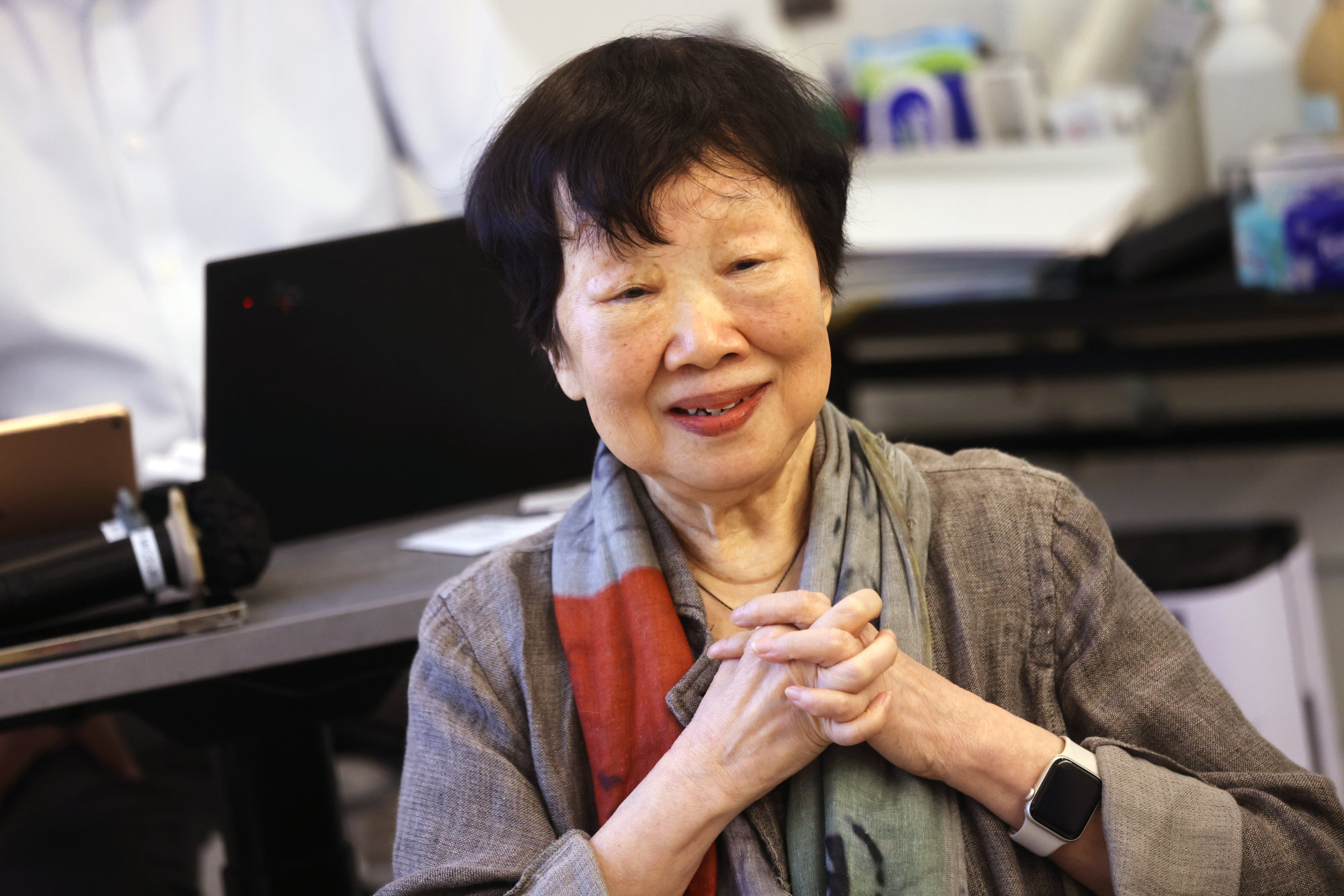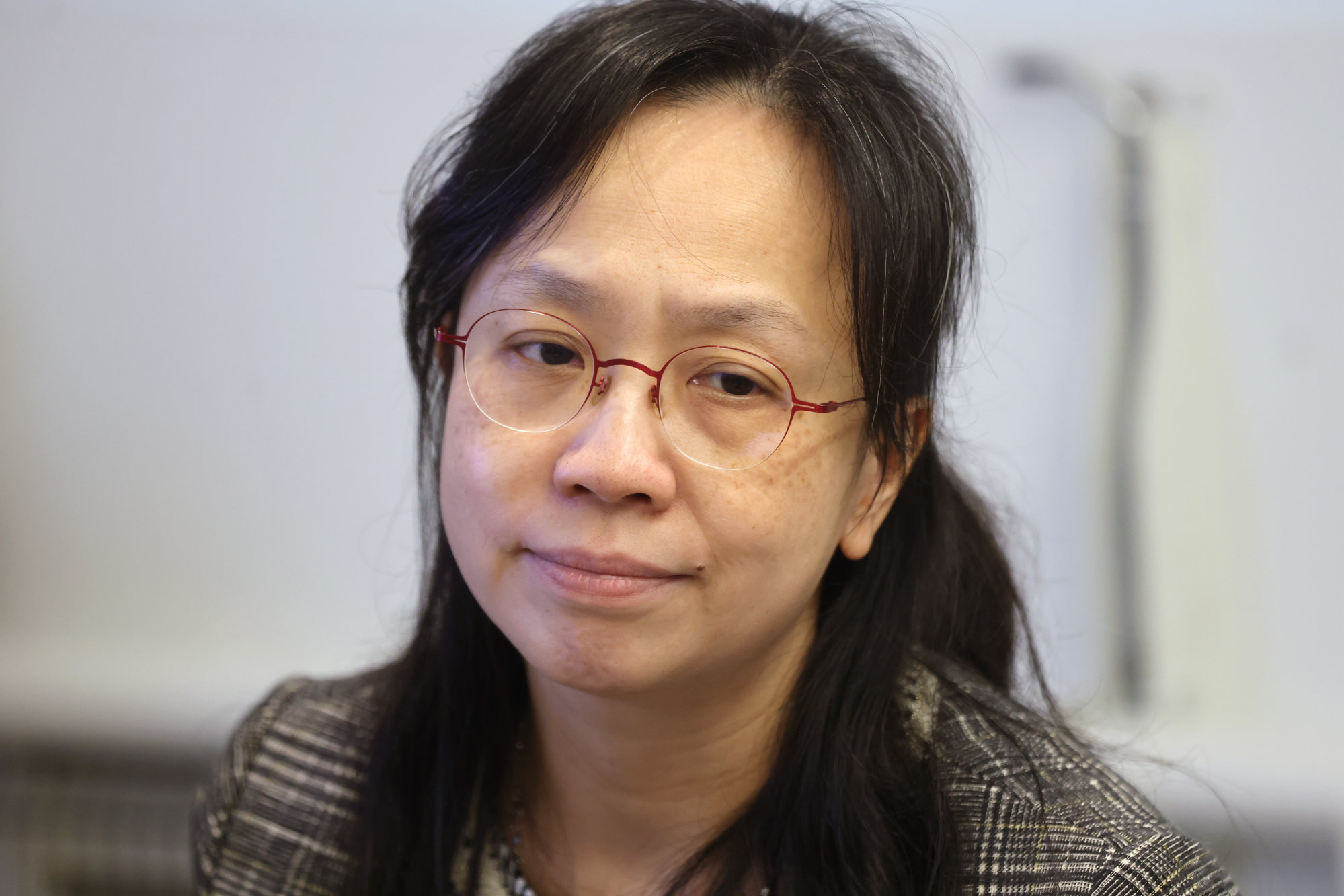Hong Kong teenager John Wong* was affected physically by an argument between his parents in the next room.
His heart raced at 184 beats a minute and his temperature plunged to 30 degrees Celsius (86 Fahrenheit).
Family therapist Dr Lee Wai-yung tracked the 14-year-old’s physiological response with a biofeedback device as the family took part in a therapy session.
Do you have questions about the biggest topics and trends from around the world? Get the answers with SCMP Knowledge, our new platform of curated content with explainers, FAQs, analyses and infographics brought to you by our award-winning team.
“Most children are deeply concerned about their parents, so whenever there is something wrong, they become extremely worried,” she said.

Lee, the founding president of the Asian Academy of Family Therapy (AAFT), applied biofeedback assessment in family therapy to track how children were affected as their parents clashed.
As suicides among the young have increased, Hong Kong experts said domestic conflicts could be a major source of children’s mental health problems and appealed for earlier intervention, including family therapy.
The suicide prevention centre at the University of Hong Kong said the city had 15 suicide cases that involved young people aged 18 and below or those who were in tertiary education institutions from August to October this year, compared with eight during the same period in 2022.
Seven people attempted to take their own lives during the same period this year, compared with three in 2022.
City authorities, in the wake of the recent cases, said they planned to set up a three-tier system to give children at high risk of suicide professional help and priority for psychiatric services.
New three-tier system to tackle suicide risk among Hong Kong children in pipeline
Lee said the biofeedback tool she developed two decades ago had been useful in understanding how children responded to conflicts at home.
“Some children who appear calm or stay silent during therapy exhibit more than 10 physiological responses, with their heartbeat surging to more than 190 beats per minute,” she said.
“The responses were especially strong when parents gave each other the silent treatment.”
The tool has been used in more than 500 cases in Hong Kong and mainland China and Lee said parents were often taken aback when they saw the effect on their children.
“That is when the penny drops,” she said.

John’s parents had been quarrelling for years, and during therapy the teenager described what it felt like to him.
“I hate to see them fight ... it’s annoying that I have to take care of my mum afterwards, but I cannot lose my temper because that would overwhelm my mum,” the boy told Lee.
“There’s no way to get out. Whenever they fight, I am the one to handle it.”
John became sick as he struggled to cope with the stress.
His psychosomatic headaches and stomach aches became serious and he started to see a psychiatrist several years ago, before he was referred to family therapy.
Family therapy helped his parents realise the impact their fighting had on his mental health.
‘Reduce Hong Kong teachers’ workload to support pupils’ mental health’
John has since left Hong Kong to continue his education in Britain and his psychiatrist has heard no more problems from him.
Dr Cindy Tam Woon-chi, a psychiatrist at AAFT, said physiological fluctuations were triggered in children as soon as they sensed a crisis.
She said some would become anxious and scared and others would feel their heart rate begin to drop, similar to animals that played dead as a survival tactic.
Tam added the responses were entirely involuntary and could not be faked.
“That is why parents accept the fact that their interactions are affecting their children,” she said.
After helping parents understand the effect on their children’s mental well-being, therapists provide counselling to help family members change the way they communicate.
Hong Kong mental health charity offers free support amid post-Covid ‘crisis’
“Change does not come easily and does not always happen, especially for parents,” Lee said.
“For young children, we aim to create a more reasonable environment for them, but older children need to learn to develop their own [emotional] space, instead of carrying on that anxiety.”
She said it was unfortunate that most cases were referred to family therapists only after years of effort by other professionals had failed to work.
Lee encouraged families who needed help to contact the AAFT, a non-profit organisation set up to promote family therapy research, training and practice in Asia.
She said families did not need a referral and those with financial problems could be eligible for subsidies.
*Name changed to protect the identity of the interviewee.
If you have suicidal thoughts, or you know someone who is, help is available. For Hong Kong, dial +852 2896 0000 for The Samaritans or +852 2382 0000 for Suicide Prevention Services.
In the US, call the 988 Suicide & Crisis Lifeline at 988 or +1 800 273 8255. For a list of other nations’ helplines, see this page.
More from South China Morning Post:
- ADHD, depression the most common mental disorders among Hong Kong primary, secondary schoolchildren, surveys reveal
- Hong Kong schools to get HK$80,000 over two years to improve mental health in classrooms and told to review pupil workloads
For the latest news from the South China Morning Post download our mobile app. Copyright 2023.





